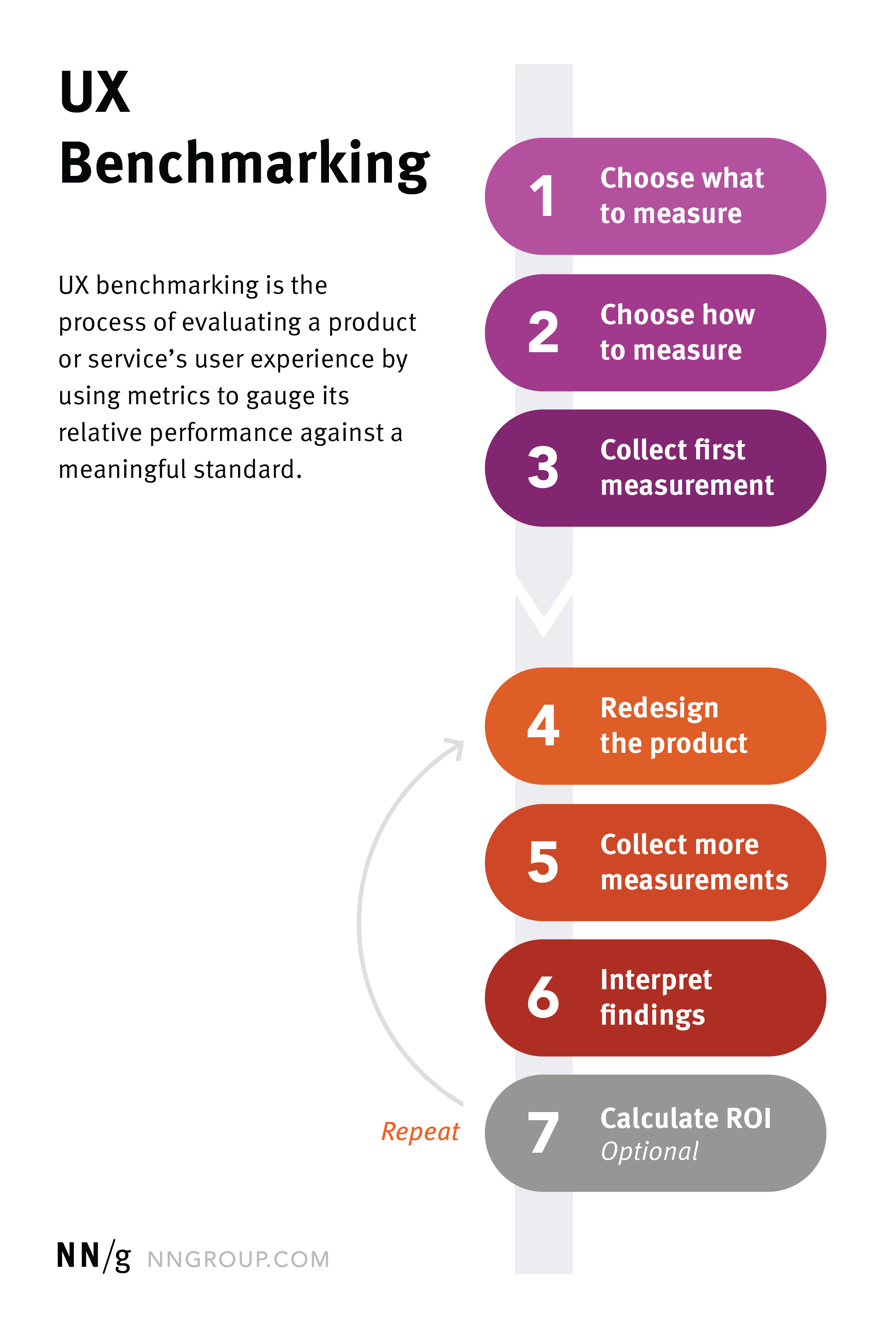
How to prioritize and demonstrate the value of UX improvements has always been a challenge at small product organizations.
From February to May 2024, I collaborated with a user researcher at RBCx to conduct a comprehensive usability study of the Mydoh mobile apps, providing key benchmarks for FY’24 UX optimization initiatives.
In this article, you will learn how we planned and executed benchmarking one mobile app’s UX.
Mydoh parent and child mobile apps
Product Designer, working alongside 1 User Researcher
February to May, 2024
UX benchmarking is the process of evaluating a product or service’s user experience by using metrics to gauge its relative performance against a meaningful standard.
Similar to product benchmark studies, where you compare your product’s performance against competitors to identify areas for improvement, UX benchmarks focus on the product’s usability metrics, like task success, errors, and user satisfaction. Benchmarking is often an ongoing program rather than a one-time activity.
Benchmarking studies typically generate a wealth of data that highlights what works and areas for improvement in your product. The insights can help narrow down focus areas to optimize your product’s usability. Thus, benchmarking studies tend to occur at the end of one design cycle, before the next cycle begins.
One of Mydoh’s FY’24 roadmap themes is to modernize the app’s user experience. While we heard some user challenges in the past, internally there was no alignment on what to address as part of this initiative.
As the lead designer on this initiative, I took the initiative to involve the user research team and conduct this study to guide our optimization efforts.

Mydoh’s high-level FY’24 roadmap themes
We followed the Neilson Norman Group's seven-step process to guide the creation of our benchmarking plan.
P.S. You’ll only see the execution summary from step 1 to step 3 in this article as the redesign is still in flight.

Neilson Norman group’s 7-step to benchmark your UX